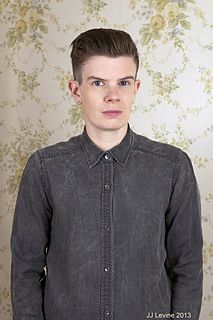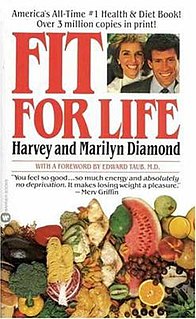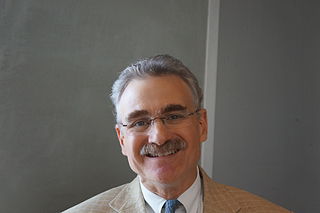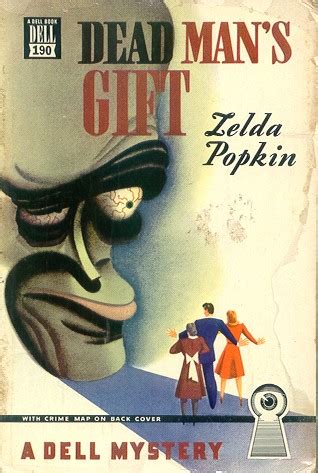Top 985 Materials Quotes & Sayings - Page 17
Explore popular Materials quotes.
Last updated on November 26, 2024.
She seemed to know, to accept, to welcome her position, the citadel of the family, the strong place that could not be taken. And since old Tom and the children could not know hurt or fear unless she acknowledged hurt or fear, she had practiced denying them in herself. And since, when a joyful thing happened, they looked to see whether joy was on her, it was her habit to build laughter out of inadequate materials....She seemed to know that if she swayed the family shook, and if she ever deeply wavered or despaired the family would fall.
I still use the pronoun she for my publicity materials, and for mainstream media stuff, for two reasons: the first is that I do a lot of work in public schools, and I want those young women and girls to see every kind of she there can be. I want them to see my biceps and my shorn hair and shirt and tie and for some of them to see me as a possibilityI want them to see me living outside of the boxes, because they might be asphyxiating in their own box and need to see there is air out here for them to breathe, that all they have to do is lift the lid a little.
I like poor materials. I couldn't see myself making a bronze sculpture - it's not me. I like neon, because it's moving constantly and like drawing. The chemicals going through the neon turns me on really - it's sexy. I like fabrics, but one of the main things with objects is that I really have to love them before I can use them. I have to have the object around me a long time. The little chairs I used in my last White Cube show are ones that my dad bought for me. A sort of a psychometry with objects and things. It's like the pieces I've made are my things.
If you are building a thirty-story building and you use worm-eaten wood for the frame, inferior structural supports, and other fourth-rate, low-grade materials, what kind of finished product do you think you will wind up with? No need to answer. So if you're building a human body and the material that will become your blood, bones, skin, organs-indeed, every cell of your body-is inferior and of poor quality, what kind of body do you think you will wind up with? No need to answer.
We call it EPCOT, spelled E-P-C-O-T: Experimental Prototype Community of Tomorrow. Here it is in larger scale. EPCOT will take its cue from the new ideas and new technologies that are now emerging from the creative centers of American industry. It will be a community of tomorrow that will never be completed, but will always be introducing and testing and demonstrating new materials and systems. And EPCOT will always be a showcase to the world for the ingenuity and imagination of American free enterprise.
The most alarming of all man's assaults upon the environment is the contamination of air, earth, rivers, and sea with dangerous and even lethal materials. This pollution is for the most part irrecoverable; the chain of evil it initiates not only in the world that must support life but in living tissues is for the most part irreversible. In this now universal contamination of the environment, chemicals are the sinister and little-recognized partners of radiation in changing the very nature of the world-the very nature of its life.
One of the best things I ever did was to train in a practical skill. I love computers and they've become such a part of life, especially to the world of design. But it's important to understand that they are a tool, as much as a hammer or a saw is a tool. Computers don't help you design. There needs to be more emphasis on training young designers in how to build things. A good writer needs a good vocabulary. A good designer needs to understand his materials and processes. You can't, as a successful designer, pretend to get any respect if you don't know how things are made.
One time, the Library of Congress was giving books to local libraries around the country on Islam. The library of a guy named Walter Jones, who's a member of Congress from North Carolina, got some books and resource materials, and he got up in the press and said he didn't want any Muslim books in the library. And the people said, "Wait a minute, that's kind of anti-Muslim." He said, "Oh no, Keith Ellison is a friend of mine." And I said, "You know what? We are friends, but you're wrong about this.
When we are generous in welcoming people and sharing something with them-some food, a place in our homes, our time-not only do we no longer remain poor: we are enriched. I am well aware that when someone needing food knocks at your door, you always find a way of sharing food; as the proverb says, one can always 'add more water to the beans'! Is it possible to add more water to the beans?...Always?...And you do so with love, demonstrating that true riches consist not in materials things, but in the heart!
One the one hand, our economists treat human beings as rational actors making choices to maximize their own economic benefit. On the other hand, the same companies that hire those economists also pay for advertising campaigns that use the raw materials of myth and magic to encourage people to act against their own best interests, whether it's a matter of buying overpriced fizzy sugar water or the much more serious matter of continuing to support the unthinking pursuit of business as usual in the teeth of approaching disaster.
The more subtle thing is more speculative. The world is well past its long-term carrying capacity for human beings living a European, much less an American, lifestyle predicated on planned obsolescence. International economic growth is largely a matter of accelerated movement of materials from mines and forests to the dump. Instead of saving and buying decent furniture we can pass on to our children, we charge our credit cards for shaped heaps of sawdust and glue that fall apart in less than three or four years.
I want to emphasize the fact that we all have the same experience and the same concern, but the artist must know exactly what the experience is. He must pursue the truth relentlessly. Once he sees this fact his feet are on the path. If you want to know the truth you will know it. The manipulation of materials in an artwork is a result of this state of mind. The artist works by awareness of his own state of mind.
The ever-mounting glut of waste materials is characteristic by-product of modern consumer society. It might even be argued that capitalism's continual need to find of generate markets means that disposibility and waste have become the spine of the system. To consume means, literally, to destroy or expend, and in the garbage crisis we confront the underlying truth of a society in which enormous productive capacities and market forces have harnessed human needs and desires, without regard to the long or even short-term future of life on the planet.
If no one speaks out for [young readers], if they don’t speak out for themselves, all they’ll get for required reading will be the most bland books available. Instead of finding the information they need at the library, instead of finding novels that illuminate life, they will find only those materials to which nobody could possibly object... In this age of censorship I mourn the loss of books that will never be written, I mourn the voices that will be silenced — writers’ voices, teachers’ voices, students’ voices — and all because of fear.
If you look into the way that materials are used in an ecological system you'll notice that you'll find that there is no waste. The waste of one organism becomes food for another and everything's recycled in an ecological system whereas in our human built environment there's a throughput system. We use something then we throw it away... We have to imitate nature and try to re-use everything we make as human beings or recycle them - when we cannot re-use or recycle them we should try to reintegrate them back into the natural environment.
Marcel Duchamp, one of this century's pioneers, moved his work through the retinal boundaries which had been established with Impressionism into a field where language, thought and vision act upon one another. There it changed form through a complex interplay of new mental and physical materials, heralding many of the technical, mental and visual details to be found in more recent art... He declared that he wanted to kill art ("for myself") but his persistent attempts to destroy frames of reference altered our thinking, established new units of thought, a "new thought for that object."
In our own time we have seen domination spread over the social landscape to a point where it is beyond all human control. Compared to this stupendous mobilization of materials, of wealth, of human intellect, of human labor for the single goal of domination, all other recent human achievements pale to almost trivial significance. Our art, science, medicine, literature, music and charitable acts seem like mere droppings from a table on which gory feasts on the spoils of conquest have engaged the attention of a system whose appetite for rule is utterly unrestrained.
Filmmaking materials are in the hands of more people now than ever before. I would like to think that the more people have these tools, the more people will learn how to use them, it's another argument I would argue for, personally, for art's education. Because there are kids who aren't that literate in screen language and they've got to know how people select shots, how people edit audio, how people combine things to make what they see on the screen. It would be like the 15th century or the 16th century in Germany, and somebody amends a printing press and you don't know how to read and write.
You do not conceive a novel as easily as you conceive a child, nor even half as easily as you create nonfiction work. A journalist amasses facts, anecdotes and interviews with top brass. Enough of these add up to a book. A novelist demands quite different things. He has to find himself in his materials, to know for sure how he would feel and act and the events he writes about. In addition, he requires a catalyst — a person, idea, or emotion which coalesces his ingredients and makes them jell into a solid purpose.
Even in an advanced stage of civilization, there is always a tendency to prefer those parts of literature which favor ancient prejudices, rather than those which oppose them; and in cases where this tendency is very strong, the only effect of great learning will be to supply the materials which may corroborate old errors and confirm old superstitions. In our time such instances are not uncommon; and we frequently meet with men whose erudition ministers to their ignorance, and who, the more they read the less they know.
Let us ask... how things work at the level of on-going subjugation, at the level of those continuous and uninterrupted processes which subject our bodies, govern our gestures, dictate our behaviors, etc... we should try to discover how it is that subjects are gradually, progressively, really and materially constituted through a multiplicity of organisms, forces, energies, materials, desires, thoughts, etc. We should try to grasp subjection in its material instance as a constitution of subjects.
Without undervaluing any other human agency, it may be safely affirmed that the Common School, improved and energized, as it can easily be, may become the most effective and benignant of all the forces of civilization. Two reasons sustain this position. In the first place, there is a universality in its operation, which can be affirmed of no other institution whatever... And, in the second place, the materials upon which it operates are so pliant and ductile as to be susceptible of assuming a greater variety of forms than any other earthly work of the Creator.
I was in a group show at a museum in Torino, a lot of American artists installed in a floor of this museum. Another floor of the museum houses the most refined collection of arte povera in the world, which is perfectly selected and perfectly installed. I remember being struck by the contrast between the Italian works and the American. I would say the hallmarks of the Italian style are a poetical connection to nature and to materiality, materials, and exquisite taste. On contrast, the American work was essentially a bunch of bad-tempered, complaining kids.
To be worthy of the name, an experimenter must be at once theorist and practitioner. While he must completely master the art of establishing experimental facts, which are the materials of science, he must also clearly understand the scientific principles which guide his reasoning through the varied experimental study of natural phenomena. We cannot separate these two things: head and hand. An able hand, without a head to direct it, is a blind tool; the head is powerless without its executive hand.
We speak erroneously of "artificial" materials, "synthetics", and so forth. The basis for this erroneous terminology is the notion that Nature has made certain things which we call natural, and everything else is "man-made", ergo artificial. But what one learns in chemistry is that Nature wrote all the rules of structuring; man does not invent chemical structuring rules; he only discovers the rules. All the chemist can do is find out what Nature permits, and any substances that are thus developed or discovered are inherently natural. It is very important to remember that.
























